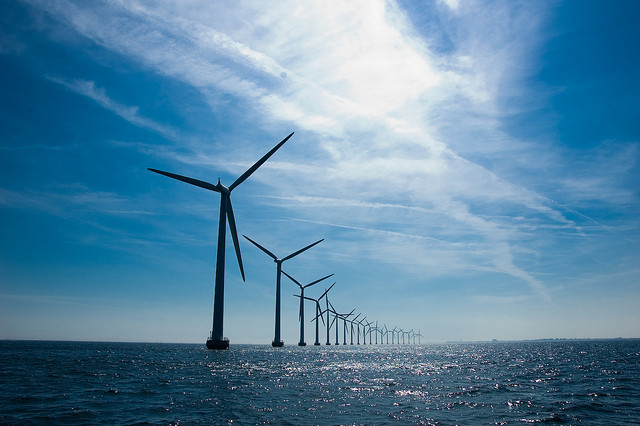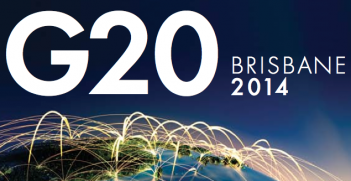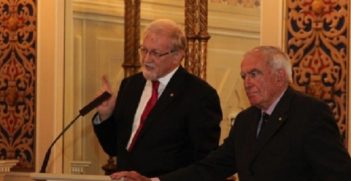Potential for a Light-Bulb Moment

A G20 emphasis on energy infrastructure, reducing impractical subsidies, better technology and instituting new rules will strengthen global energy market resilience, argues Professor Xu Yi-Chong
As the world’s largest energy producers and consumers, all G20 members face the challenge of securing safe, reliable and sustainable energy supplies. Yet, despite a consistent agenda on energy over the years, discussion at G20 is often plagued by internal division – between the main producers and consumers, and between the more and less-efficient producers and consumers. These differing perspectives make it difficult for countries to cooperate.
Energy development is witnessing profound new changes. The centre of energy production and consumption is shifting – for example, the US has significantly increased its shale-gas production and reduced its reliance on oil imports as its oil production rose from 5 to 7.4 million barrels a day between 2008 and 2013. Meanwhile, East and South Asia are becoming the largest sources of energy consumption. Unconventional oil and gas and renewable development is transforming our understanding and calculation of energy security. Renewables and nuclear generation capacities have expanded faster than thermal capacities in the past decade, with most G20 countries having set a target for renewable development. And to accommodate the rapid expansion of renewable energy and new energy producers, rules governing the energy markets are being rewritten.
Now more than ever, energy markets are global markets. New challenges and old issues all need to be managed through cooperation. On several issues, cooperation is particularly important for securing reliable and sustainable energy supplies – investment in energy infrastructure, technological development, improvement in energy efficiency and rule development.
Investing in energy infrastructure
Such cooperation includes investment in upstream and downstream oil and gas industries, in coal mining and transportation and in electricity infrastructure. As energy demands shift to the emerging economies, the sense of energy insecurity in these countries will continue driving their governments to develop policies and strategies in global competition for energy resources. These will include traditional low-cost oil in the Middle East and some African countries, and new deep-water oil drilling in countries such as Brazil. While those rich in natural energy endowment need investment to continue their energy-associated economic development, countries poor in resources will compete for the access to them. This includes not only oil and gas, but also coal. Eight of the top 10 coal producers in the world are G20 countries, and they are also among the top coal-consuming countries. This raises not only the issue of investing in overseas coal mining and transportation facilities (ie. ports and rail), but particularly the regulation on these investments – who can invest, under what conditions is investment permitted and where investment is allowed?
Most importantly, all countries face challenges in investing in electricity infrastructure. This includes investing in supercritical thermal generation plants and renewable generation capacities that are necessary to control GHG emissions. It also means developing the transmission and distribution networks vital for meeting the rising demand for reliable electricity supplies, and to accommodate expansion of renewable generation capacities (wind and solar, in particular), whose intermittency requires well-connected grids.
Emerging countries need more such infrastructures while developed countries need to replace their ageing framework. New thinking is required on how to ensure adequate investment when there is little incentive for private investment and the public money is scarce. So G20 countries need to develop national and cooperative strategies to ensure adequate investment to meet these challenges.
Technological development
Less than a decade ago, energy production, consumption and climate change were widely seen as uncompromising alternatives, and this was especially the case where development was concerned. Today, an increasing number of countries have adopted policies that take advantage of the transition from traditional reliance on fossil fuels to other alternatives – whose future is built on technology and innovation, and whose development is contributing to their economic growth. While some insist on old ways of producing (and consuming) energy, they risk not only the consequences of climate change but their own sustainable economic development.
For example, the recent boom of non-conventional oil and gas in the US is due less to geographical luck and more to “dazzling technology” supported by ready finance. Meanwhile, Siemens and ABB have developed technologies on ultra-high voltage transmission grids that bring Germany and Switzerland not only quality jobs but a large amount of business. Optimistically, countries are now cooperating on technology development towards energy sustainability: the bilateral agreement between the US and China in May 2013 is a joint embrace of five key technologies to ensure sustainable energy futures – heavy vehicle emission reductions, smart grids, carbon capture, utilisation and storage, GHG data information collection and exchange and energy inefficiency. Likewise, Germany, Japan and New Zealand are also now collaborating with Indonesia on geothermal energy development.
Energy transition will continue with innovation and technological development – but they both depend on private and public partnerships (PPPs) and cross- country cooperation. While basic research and development has always heavily relied on government support, cutting-edge energy technology development tends to require PPP help. Given that some countries are already seeing the return on their investment in terms of exporting clean energy technologies, the G20 provides a forum for countries to form collaborative efforts in such technology development. The importance is to have the vision and leadership to do so. In summary, whoever leads energy technology development controls the pathway to a sustainable future.
Coordinated efforts on subsidies
At the Seoul Summit in 2010, the IEA, OECD and the World Bank were asked to prepare a report on fossil fuel subsidies – and they totalled over US$55-90 billion between 2005 and 2011. Such subsidies act to keep alive not only the operation but also the consumption of the dirty energy industries (such as hard coal), and also discourage efforts to improve energy efficiency, which is the best way to ensure energy security. Furthermore, they are often the source of trade disputes – for example, gas prices in the US are one-third of the imported gas in European countries and one-fifth of that in Japan. On average, industries in Europe, Japan and China pay double the price for electricity than their counterparts in the US. Meanwhile, in most countries their subsidised power tariffs make the industry unsustainable. Working out a common solution to reduce the government burden and to encourage both energy efficiency and usage of renewables will have global benefits.
Rule development
Whether it’s about infrastructure, new technologies or affordable prices, new rules are needed to encourage investment across borders while ensuring financial stability. Rules are also needed for the emerging energy technologies – such as electric vehicles, unconventional oil and gas, smart grids or ultra-high voltage transmission networks – to ensure safe and reliable supplies. Likewise, institutions need to adapt for the shifting global energy producers and consumers. Given the G20 consists of developed and developing countries, and energy producers and consumers, it has the opportunity to lead a cooperative effort in creating global standards and rules.
Xu Yi-Chong is a Professor in the Centre for Governance and Public Policy and the School of Government and International Relations in Griffith University and a Research Fellow in Griffith Asia Institute.
This is an extract from G20: Words into Action Brisbane 2014, to be published by Faircount Media in association with the Australian Institute of International Affairs in October 2014.





